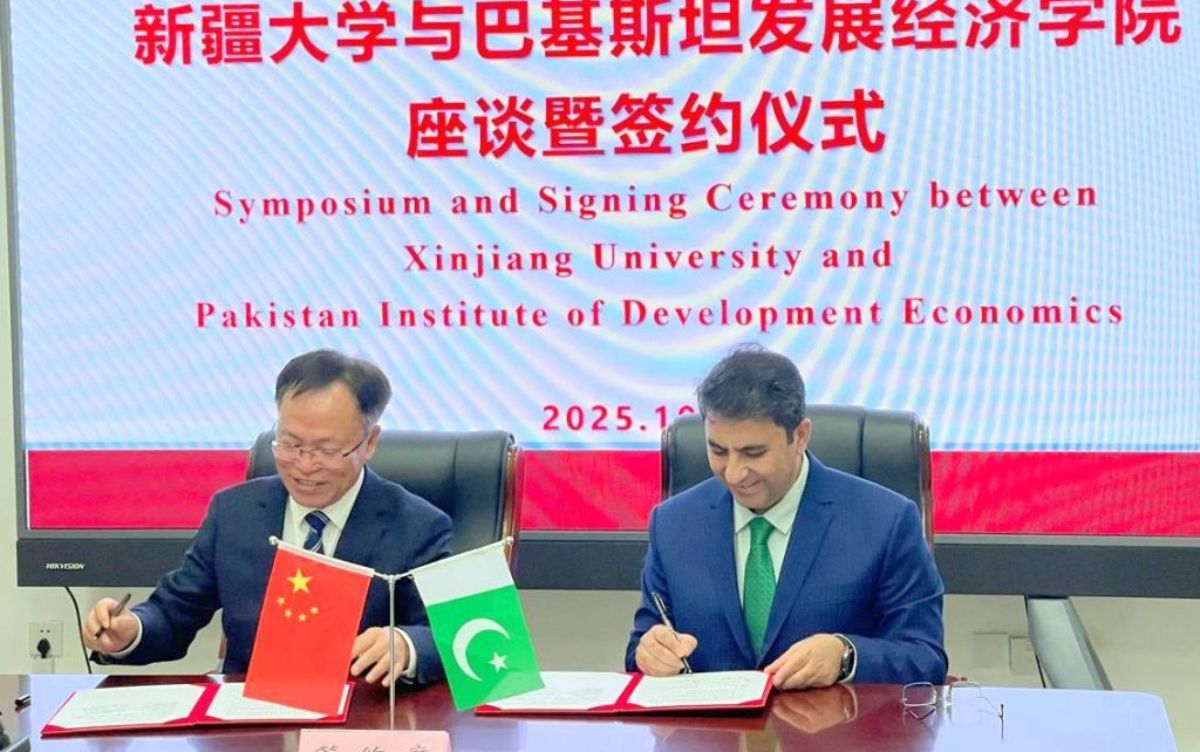PIDE and Xinjiang University Strengthen Research Collaboration
The Pakistan Institute of Development Economics (PIDE) and Xinjiang University have signed a Memorandum of Understanding (MoU) in Ürümqi, China, marking a major stride in fostering academic and research cooperation between Pakistan and China. The event, part of a broader effort to strengthen collaboration under the China-Pakistan Economic Corridor (CPEC) and the Belt and Road Initiative (BRI), reflects both institutions’ commitment to advancing innovation and sustainable development through research-driven partnerships.
The symposium, chaired by Dr. Liu Zhengjiang, Vice President of Xinjiang University, began with introductions and a video presentation showcasing Xinjiang University’s academic achievements and global initiatives. In his welcoming remarks, Dr. Ma Xinbin, President of Xinjiang University, reaffirmed the historic friendship between Pakistan and China while emphasizing the importance of deepening cooperation in education, research, and cultural exchange.
 P.c. China Pakistan Economic Corridor
P.c. China Pakistan Economic Corridor
Addressing the gathering, Dr. Muhammad Nadeem Javaid, Vice Chancellor of PIDE, highlighted that academic collaboration plays a key role in promoting regional integration and innovation. He underscored the significance of partnerships like this one in generating evidence-based policy insights aligned with the vision of CPEC and the BRI.
Both sides held detailed discussions exploring opportunities for joint research, student and faculty exchanges, capacity-building programs, and policy dialogue on regional economic development. The ceremony concluded with the formal signing of the MoU, symbolizing a mutual commitment to academic exchange, research collaboration, and shared learning.
Distinguished participants included senior academics from both institutions, such as Dr. Muhammad Muzammil Zia from PIDE and senior faculty members from Xinjiang University, along with representatives from the Xinjiang Diplomacy Association. The collaboration is expected to open new avenues for research publications, academic programs, and people-to-people linkages, further strengthening academic diplomacy and enhancing Pakistan-China relations through shared knowledge and innovation.